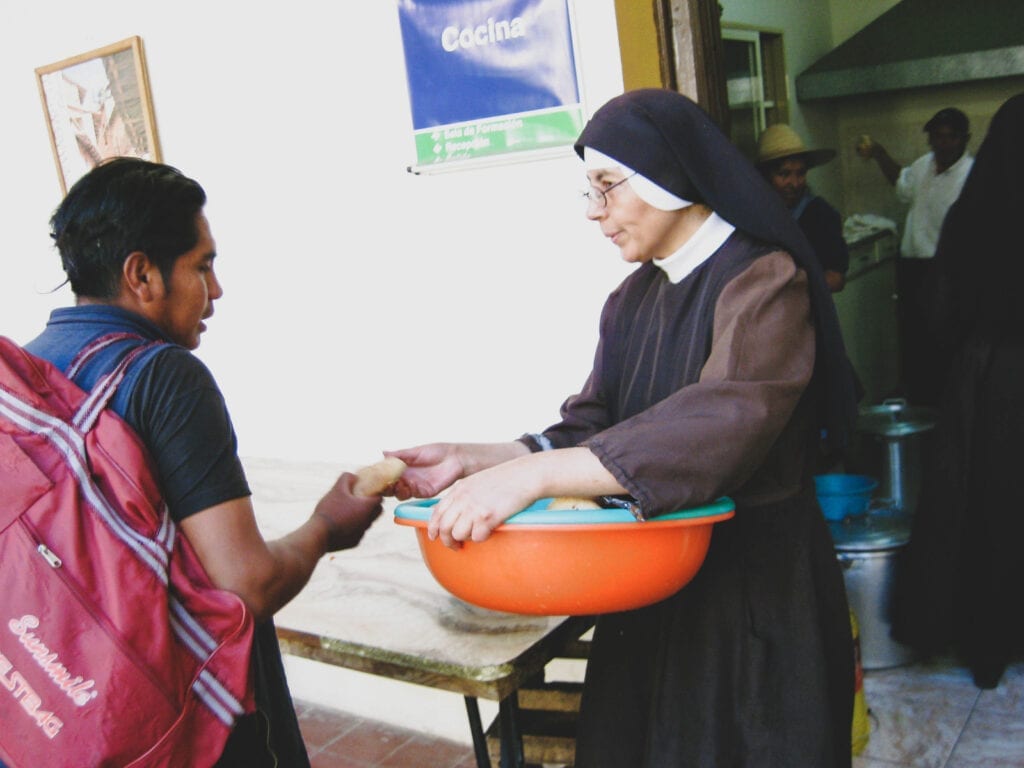
An American spent some time in Eastern Europe. The experience was an eye-opener to her. Simple things she took for granted, such as language, dress code, and mannerism, were different from those she met and made her see things in a different light. “In those months,” she said, “I appreciated what it feels like to be a stranger in a foreign land.”
One could theorize about the situation of orphaned children. The story is different when one is an orphan or has seen it first hand from kids who never had someone to call a mom or a dad. When we open our hearts to the realities around us, we see things not only in our light but also in the light of another. We would have a fresh, enriching perspective about the value of the love of neighbor.
Many of us learned the Golden Rule right from high school, some from when we were in elementary school. “Do unto others as you would want done unto you.” It is a biblical message too. It is equally one of those ethical rules inscribed in many cultures. We chant it. We memorize it. How often do we live it?
If we follow its value, we are leading in the right direction. We are implementing what the Lord says is the summary of the Law: Love of God and love of neighbor. 1 John 4:20 will connect the love of God with the love of neighbor: If anyone says, “I love God,” and hates his brother, he is a liar; for he who does not love his brother whom he has seen, cannot love God whom he has not seen.”
It was one of the lessons from the biblical historical book of Exodus, chapter twenty-two. Having freed Israel from Egypt, God gave the law and told them how to relate. He emphasized care for the weak, the poor, “orphans,” and widows. He reminded the people that when they settle in the land He had promised, they should not forget where they come.
God reminded them that since they were once aliens in another country and saw how it feels to be treated as a “second-class” citizen, they better treat others with equal dignity. In particular, they should not treat an alien, the poor, an orphan, or a widow, in such a way as to remind them they have no one to fight for them and their rights.
These groups of people, called the poor of the Lord (the anawim), have one thing in common. They are those who have no one to fight for them. Those bowed down (the original meaning of the Hebrew word anawim), the vulnerable, the exploited, and the marginalized. I believe the Lord’s instruction relates to how to deal with anyone who doesn’t seem to have the same support system or privileges we have. I should do unto them how I would want to be treated. It is LOVE of neighbor 101.
If everyone behaves towards others the way they would love to be treated, we wouldn’t have all these painful abuse stories. Exploitation, racism, and injustice will be on the way to eradication. This proposal may sound like an unrealistic ideal. But isn’t it the kind of life believers should lead?
I’m to reexamine my life and assess whether my love of God (worship/religion) also inspires me to love my neighbor? Some simple ways I would know include the following: How do I treat my coworker, my friends, relatives, and my spouse? How do I treat those who seem to be my enemies? Do I have a keen interest in helping the poor and the needy? Or am I driven by only what is about me, the ego-drive?
I am praying that God will give us the grace of love—the love of God and the love of my neighbor. Amen.
God love you. God bless you.
Fr. Maurice Emelu
[Sunday Week 30 A: Ex 22:20-26; 1 Thes 1:5c-10; Mt 22:34-40]
